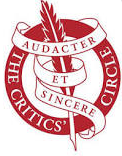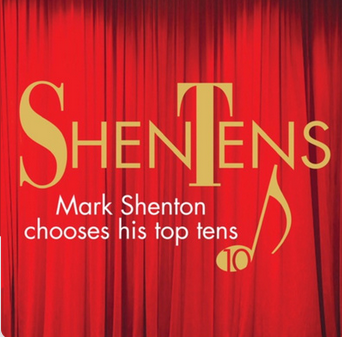Turkeys, they say, don’t vote for Christmas, so you wouldn’t expect me to speak out against the importance of critics. As someone who will next year — assuming we all make it there! — celebrate my 20th year as a full-time professional theatre critic, you could say I have a vested interest in supporting our endurance as a profession.

Until last month, I was President of the Critics’ Circle, serving the usual two-year term at the helm of an organisation — founded in 1913 — that specifically represents and lobbies on behalf of professional critics across every genre, including theatre (the oldest, founding section), film, music, dance, art and literature, and prior to that was chair of the drama section for nine years.
And of course, theatre critics don’t tend to arrive in that professional position with no prior experience: I’ve been writing about and around the theatre for much longer than these last twenty years, and going to the theatre for more than twice as long as that.

Over the weekend, I was reminded of the importance of the critics who can draw on a breadth of experience and knowledge when I read a review of a show called Public Domain (pictured above) that ran for just three performances, streamed live from Southwark Playhouse; and specifically the first unveiling of a work very much in progress. But this stage in its gestation was precisely caught by Dominic Cavendish in a review for the Telegraph that articulated just what it was trying to achieve, its background, its influences, and also where it is currently succeeding as well as failing. All in 526 words. Here are just 95 of them, but they perfectly distill both the mood and the music of the piece.
“Musically the piece moves in tirelessly surprising ways, ever-changing tempo, aligning the air-head word-torrent (“You guys are my friends!”) with electronica redolent of amusement arcade and algorithm. Are these songs – they tip into catchy pop – or discordant cries from the mad-house?
For all the whizzy screen-grab material with which the manically upbeat performances on stage are live inter-cut (full marks to director Adam Lenson and video guy Matt Powell) – 70 minutes feels like an overload. But maybe that’s the point. You want to mute them, can’t quite look away.”
 Of course, Dom is luckier than many critics to have the comparative leisure of that word count — in the days when I reviewed for The Stage, most reviews were set at 250 words, which meant on the one hand that you had to make every single one count, but also magnified the frustrations I endured when a newly-appointed reviews editor there (who previously held the title of joint chief critic, alongside myself, and continued to do so after she assumed her new full-time role at the company) frequently demanded rewrites. It was this development that hastened my departure from that publication; in an event that proved to be the last straw, she asked for a rewrite on a review I supplied from New York that I duly and promptly supplied, then published the review with an entirely rewritten opening paragraph that didn’t contain a single word that I’d actually written.
Of course, Dom is luckier than many critics to have the comparative leisure of that word count — in the days when I reviewed for The Stage, most reviews were set at 250 words, which meant on the one hand that you had to make every single one count, but also magnified the frustrations I endured when a newly-appointed reviews editor there (who previously held the title of joint chief critic, alongside myself, and continued to do so after she assumed her new full-time role at the company) frequently demanded rewrites. It was this development that hastened my departure from that publication; in an event that proved to be the last straw, she asked for a rewrite on a review I supplied from New York that I duly and promptly supplied, then published the review with an entirely rewritten opening paragraph that didn’t contain a single word that I’d actually written.
So there’s a further point, as you read (and react) to the reviews you read: they’ve not always been written by the critic whose name is attached to them. It’s another reason why I’m now relishing the necessity, which has turned into a golden opportunity, to go it alone on my personal website now: I’m no longer writing for editors who know less about what I’m writing about than I do (I had to frequently fight against errors that were introduced into my copy, too, as those ‘improvements’ were made). I’m no longer second-guessing what an editor wants; instead, I can be true to what I want to say.
But this also feeds into a radically changed landscape of dramatic criticism that I’ve been part of, from one where old ‘legacy’ newspapers were once king — with their long-established stable of critics — to a world in which everyone now thinks they’re a critic, just by virtue of having a Twitter account, a vlog or a blog. However, as I’ve long also said, there’s an awful lot of noise on the internet, but some voices manage to rise above the din.
I remember that when I was at University, I would rush to the JCR every morning and devour the daily papers, and in particular the reviews of Irving Wardle, then writing in The Times, or Robert Cushman and then Michael Radcliffe in The Observer. It was the only way to access reviews. These were the days, of course, long before the internet.
It also meant, as a precocious student journalist who also aspired to fill their shoes one day, that I knew that theirs were ‘dead men’s shoes’ — and they were pretty much all men in those days — where you had to wait for one of them to expire before a vacancy would emerge. There were a handful of outlets that encouraged younger voices — like the London listings magazines Time Out, What’s On in London and the long-departed City Limits (where interestingly, there were more female voices, with editors like Jane Edwardes at Time Out and Lyn Gardner at City Limits) — and I remember filing my first freelance reviews for a free magazine called LAM that was aimed at Australian ex-pats in London and you could pick up in bins on the streets of London in the 80s and 90s. I also wrote for a publication aimed at tourists called This is London.
So the arrival of the web meant new opportunities, including WhatsOnStage which I joined early in its existence and soon became lead critic of. I left it to join a brand-new website theatre.com, founded by the then-publishers of Broadway.com who even set up a London office to manage its editorial and sales divisions, but found the London ticketing market too hard to crack and eventually folded its London coverage inside that of Broadway.com itself.
In 2002, I had also acquired my own ‘national’ newspaper perch, the Sunday Express — it was, frankly, no longer the paper it used to be, but at least it had a national reach, and I relished the opportunity to speak to a broad readership, not just a theatrically-bespoke one. Space was tight — I usually had just 500 words a week, into which I’d regularly squeeze reviews of three or sometimes even four shows, which basically meant one lead review (250 words, the length of a Stage review), then a couple of capsule reviews of 150 and 100 words each. But it was something: at least the paper was covering theatre, however briefly. (Last November it finally laid off all its arts critics, and now owned by Reach, who also publish the Sunday Mirror, it runs identical review pages across both titles, with the theatre section being basically a run of short capsule previews).
 I didn’t mind, though, as I found myself also being able to write at considerably more leisure for LondonTheatre.co.uk, the longest-established of all the theatre websites in Britain (it was founded in 1995 by Darren Dalgeish, who brought me on board around 2009, and where one of my editors was Dom O’Hanlon (now senior commissioning editor at Methuen Drama). Darren subsequently sold the site to Encore Tickets, the biggest ticket retailer in London, who I’m pleased to say maintained the site’s editorial independence, despite what might have been thought would be a vested interest to provide favourable or ‘soft’ coverage that would facilitate ticket sales. I also started reviewing for londontheatre.co.uk’s sister site, NewYorkTheatreGuide.com, edited by Tom Millward, as from 2012 I’ve also had a foot in New York as my husband and I have our own small apartment there, which I used to visit every couple of months to catch the latest shows there (at one point, I’d been the New York critic for The Stage).
I didn’t mind, though, as I found myself also being able to write at considerably more leisure for LondonTheatre.co.uk, the longest-established of all the theatre websites in Britain (it was founded in 1995 by Darren Dalgeish, who brought me on board around 2009, and where one of my editors was Dom O’Hanlon (now senior commissioning editor at Methuen Drama). Darren subsequently sold the site to Encore Tickets, the biggest ticket retailer in London, who I’m pleased to say maintained the site’s editorial independence, despite what might have been thought would be a vested interest to provide favourable or ‘soft’ coverage that would facilitate ticket sales. I also started reviewing for londontheatre.co.uk’s sister site, NewYorkTheatreGuide.com, edited by Tom Millward, as from 2012 I’ve also had a foot in New York as my husband and I have our own small apartment there, which I used to visit every couple of months to catch the latest shows there (at one point, I’d been the New York critic for The Stage).
That happy relationship continued until last year, when just ahead of the arrival of the pandemic, Encore Tickets was acquired by the venture-capitalist supported TodayTix, a company that was just eight years old but aggressively pursuing new global opportunities to position itself as a major provider of theatre tickets in London as well as on Broadway. I introduced myself to the New York based editor of TodayTix, though theatre was by then suspended in both cities, and there was nothing to review; she assured me she’d be in touch when theatre hopefully resumed. I’ve already written here about how, when this actually happened (back in September, before being suspended again), she “had other ideas about the way the coverage would work that didn’t include me (she never actually had the courtesy to formally tell me she wasn’t using me anymore, but after not hearing her for three months, I got the message).”

My job, just as many others have found during this pandemic, has changed and morphed; I’ve always said we all have to stay ahead of the game as best we can, and that new chapter, for me, has meant devoting my resources to this site now. I also last week launched a new weekly podcast, ShenTens (the first episode is here, in which I choose my personal top tens in different theatrical categories, like my Favourite Top Ten Musicals (the subject of last week’s inaugural episode) or my Favourite Top Ten Movie Musicals (which will be the subject of this week’s episode, being released on Friday).
It dovetails neatly with this website, as I can also offer a complementary editorial column with more facts and information about each of my choices (as well as links to YouTube clips from each of those choices) that is published to coincide with the release of the podcast.
A brand-new chapter is opening up in my critical life — and I think this may yet turn out to be best one yet.
